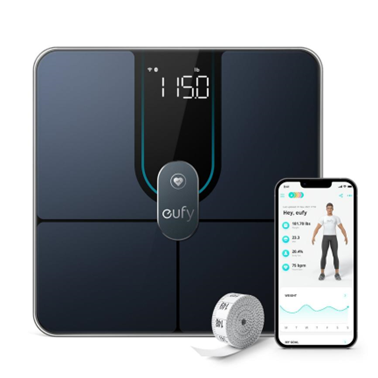In an age where technology influences
nearly every aspect of our lives, the realm of health and fitness is no
exception. Smart body scales have become a popular tool for tracking weight and
body composition at home. These innovative devices promise more than just a
simple weight reading; they often provide insights into body fat percentage,
muscle mass, and hydration levels. However, a question looms for many users:
How accurate are these smart body scales when it comes to measuring weight?
Understanding
Smart Body Scales
Smart body scales use bioelectrical
impedance analysis (BIA) to measure body composition. This technology works by
sending a low-level electrical current through the body. The scale then
measures the resistance the current encounters, which varies between different
types of tissues (fat, muscle, water, etc.). By analyzing this data, the scale
estimates body composition metrics alongside weight. Many smart scales connect
to mobile apps, allowing users to track their progress over time and compare
metrics.
When it comes to pure weight measurement, smart body scales can
be quite accurate. Most models are designed to provide weight readings within a
range of +/– 0.2 to 0.5 pounds (approximately 0.1 to 0.2 kg). Factors like
calibration, battery life, and user technique can influence these readings. For
instance, using the scale on an uneven surface or stepping on it improperly can
lead to variations in weight readings.

The Technologies Behind Smart
Scales
Calibration
Many smart body scales require calibration
to ensure accurate readings. It is crucial to follow the manufacturer’s instructions for calibrating the
device, typically involving weighing an object of known weight or standing on
the scale for a few seconds before taking a measurement. Regularly calibrating
your scale can help maintain its accuracy over time.
User Technique
The way users interact with the scale can
significantly impact accuracy. For instance, weighing yourself at the same time
each day, preferably in the morning after using the restroom, can yield more
consistent results. Moreover, standing still and positioning your feet
correctly on the scale are essential for accurate readings.
Environmental
Factors
Environmental factors can also affect the
accuracy of smart body scales. Changes in temperature, humidity, and even the
presence of electronic devices nearby can interfere with measurements. For best
results, positioning the scale on a flat, stable surface away from other
electronics is recommended.

Benefits of
Smart Body Scales
While concerns about accuracy are valid,
smart body scales offer numerous benefits beyond just measuring weight. They
provide comprehensive insights into body composition, allowing users to monitor
their health and fitness journey more holistically. Many scales also offer
trends and historical data, making it easier to set and achieve fitness goals.
Integration with health apps can also promote accountability and motivation
through friendly reminders and community support.
Limitations of
Smart Body Scales
Despite their benefits, it’s essential to recognize the limitations
of smart body scales. For starters, the BIA technology used in these devices
may not be suitable for everyone. Factors such as hydration levels, recent
meals, and workout intensity can skew results, leading to variability in body
fat and muscle mass readings. Additionally, the technology tends to be less
accurate for individuals with obesity or very high muscle mass, as the
algorithm may not account for variations in body composition accurately.
Conclusion
In conclusion, smart body scales can
provide reasonably accurate weight measurements when used correctly and
maintained properly. However, users should be aware of the factors that can
influence accuracy, including calibration, user technique, and environmental
conditions. While these devices offer valuable insights into overall health and
fitness, they should complement, not replace, traditional methods of health
monitoring and consultation with healthcare professionals. By understanding the
strengths and limitations of smart body scales, users can make informed
decisions to support their health and wellness journeys.
